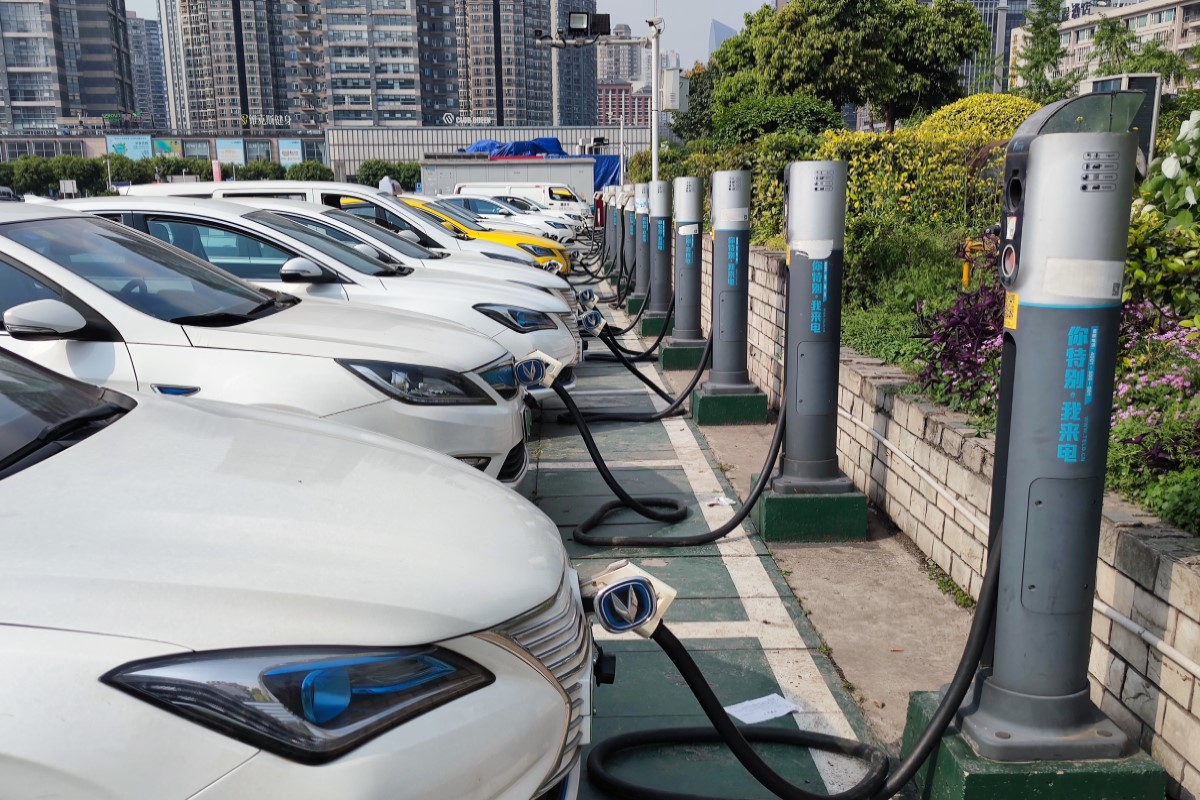The popularity of electric vehicles is on a steady rise across the world but China is an outlier where these new energy vehicles are selling like hotcakes. The China EV market is the biggest in the world and makes up more than half of all electric vehicles sold around the globe. Although it is more sophisticated, China’s electric vehicle sector is seeing a stiff price war between EV makers, potentially kicking out some of the smaller players in the near future.
US-based EV maker Tesla, the only foreign automaker that has managed to gain a strong foothold in China, initiated a price war by slashing the price of its cars by nearly 50%. This began in October, but Tesla undercutting its domestic competitors in China has led to a flurry of discounts by companies such as Nio, BYD, XPeng and others.
The price war has spread across the EV sector, with battery makers such as CATL joining the fray. The whole price war scenario has caused uneasiness for the market, with the China Association of Automotive Manufacturers (CAAM) urging an end to the price war to ensure stable and healthy growth of the industry.
“The price war will not last long, value for money is the eternal business law…Automobile companies should focus on the long-term, make more efforts in product technology, quality, service, brand power, etc., and commit to high-quality development. In the process of stabilizing growth and promoting consumption, local governments must adopt appropriate methods,” CAAM said in its statement.
Winners and Losers of China EV price war
Tesla undercutting the prices of its competitors was one catalyst for the price war in China EV market, but there are other contributing factors as well. Late last year, Beijing ended its long-running subsidy scheme for electric vehicles which had brought in large amount of investment into the sector. The end of subsidies and the zero-Covid policy of China had upended consumer spending in the country, leaving EV makers with few options to boost sales.
Nio, XPeng, Li Auto saw a decline in sales after Tesla started offering discounts, which forced them to cut prices as well. Some other companies that followed suit are the state-owned automakers SAIC and GAC, whereas foreign carmakers such as BMW, Mercedes-Benz and Volkswagen have also joined in.
“Nio, Xpeng and Li Auto are run by smart guys and enjoy the backing of provincial godfathers,” Michael Dunne, founder of ZoZoGo, an automotive consultancy based in the US, tells The Wire China. “But there are over a dozen other automakers trying to get on track. I expect we’ll see the failure of some of the smaller ones.”
China’s automotive industry is already under pressure, and passenger vehicle sales fell 20% in the first two months of 2023, as per the China Passenger Car Association. However, sales of new energy vehicles rose 61% in February compared to the previous year.
The other factor is the falling price of battery materials, with Lithium prices falling over 20% in 2023, even as EV sales are rising. CATL is the world’s largest battery maker and has been giving deep discounts to lock in customers for a long time. Reports indicate that CATL approached Nio, Li Auto, Huawei and Geely unit Zeekr with steep discounts on its batteries, but the caveat is that these automakers need to source at least 80% of all their battery purchases from CATL for the next three years.
“The evolving price war in China’s car market, escalating from new-energy vehicles (NEVs) to internal-combustion-engine vehicles (ICEVs), is likely to extend into the second quarter and erode profitability along the entire automobile value chain in 2023,” says Fitch Ratings. “The industry-wide profitability erosion from the price war is likely to be shared between automakers (including EV makers), suppliers and dealers.”










 Australia
Australia China
China India
India Indonesia
Indonesia Japan
Japan Malaysia
Malaysia Philippines
Philippines Singapore
Singapore South Korea
South Korea Taiwan
Taiwan Thailand
Thailand Vietnam
Vietnam
 Germany
Germany Hong Kong
Hong Kong USA
USA Switzerland
Switzerland Singapore
Singapore United Kingdom
United Kingdom








